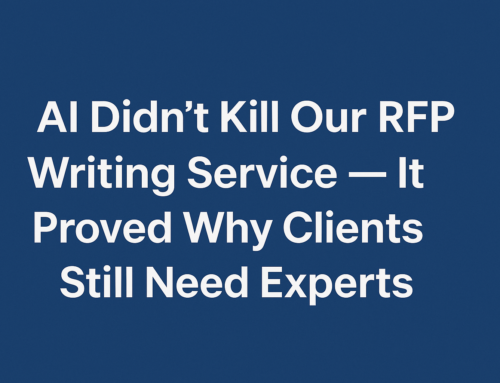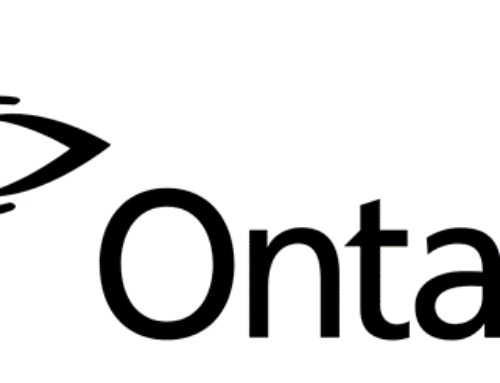
HVAC RFP Writer Tips for Winning More Business
If you are an HVAC RFP writer or responsible for Business Development in an HVAC company, you should be excited about the opportunity that exists for the multitude of HVAC service contracts released every year via the RFP process. The HVAC business has been smoking hot (literally) for the past four years and winning RFPs in the HVACR industry is critical for small and mid-sized players moving to the next stage.
The MUSH sector (Municipalities, Universities, Schools, and Hospitals) alone has released thousands of contracts via RFP since 2020.
MUSH organizations plus thousands of Commercial Enterprises and Government Agencies are mandated to use the RFP process as a fair process for awarding contracts by:
-Attracting and qualifying HVAC vendors
-Evaluating their proposals based on a pre-determined set of criteria (price is definitely one)
-Choosing a winner to fulfill each HVAC contract
RFP Scoring Example for HVAC
A typical weighting for evaluating qualified HVAC suppliers looks something like this. This will vary depending on the RFP and the issuer.
-Company experience and Qualifications = 35%
-Methodology, Processes, Team, Equipment = 30%
-Pricing = 35%
Where to Find the Latest HVAC RFPs
To stay current and review the latest RFPs that get posted, check out and register on a variety of online Proposal Portals. Provincial Portals typically offer free registration. Some of the National Portals have membership fees. Here are some suggested portals and pricing to get you started:
1) Ontario Government Jaggaer (authorized) Portal – free:
2) Federal Public Service and Procurement Canada – free:
3) Bonfire – free:
4) Biddingo – $250/year:
5) MERX: Fees $60 per solicitation or you can choose monthly plans at $25/$40/$75:
Registered Vendors that qualify, can bid for the contracts through that particular portal. The timelines are often short and require companies to prepare a lot of documentation and develop a winning proposal – often in less than 30 days. You can do it, but it takes some focus around getting your company information organized.
Some Basic RFP Go, No-Go Considerations
RFPs are a serious business development initiative. To be successful, competing to win through the RFP process must fit within your organization’s overall growth strategy. It it doesn’t and if your HVAC organization isn’t committed to the process, the chances of winning are slim. There is simply too much time and effort required to compete successfully unless there is knowledge and commitment to the RFP process.
Before jumping into the RFP process, it’s really important to think through whether it makes sense to proceed or not. There are several basic elements to consider when making a go, no-go decision. First, does your organization meet the mandatory requirements? It’s the second question we ask new clients (the first is ‘have you read the RFP completely?’). Not meeting the mandatory requirements makes the go, no-go decision easy. If you don’t meet the mandatory requirements, then proceeding is a waste of time.
Another key consideration is whether you have the resources and time to complete the RFP before the deadline. RFP writing organizations like ours are used to working up close to the deadline. The greatest challenge is usually the time and resources required internally in organizations to pull together the solution and supporting documentation. For organizations that are used to the process this is easy. For those that are new to the process, this can be a challenge.
The final consideration for HVAC organizations deciding to compete through the RFP process is whether you have the necessary resources to fulfill a contract if you win it. Many HVACR companies are really busy right now. As tough as it is to walk away from potential business, sometimes it’s the right thing to do.
If you’re considering going forward with an RFP, here’s a link to a very useful go, no-go checklist you can use to help with your decision.
Steps in the HVAC RFP Writing Process
Once you’ve decided to go forward, here is a summarized list of what you will need to do to succeed:
- Get your business documents in order and make sure the files are easy to access for your RFP response team(s), including outside writing suppliers. The documents will include:
- Company Profile, Management Team, Organization Chart
- Resumes of Key Personnel
- Fleet Insurance for Service Vehicles
- List of all Subcontractors
- Professional Licenses
- References (from similar size/scope projects)
- Recruiting and Training Processes documented
- Health and Safety program/Environmental policy
- Proof of insurance/Workers compensation
2. Use a document sharing platform like “One Drive” or “Google Drive” as a Library for storing and sharing Proposal documents. Think of the Proposal Library as an ongoing resume about your company that can be continuously used and built on – especially important as personnel come and go.
4. Figure out your pricing strategy. You know your industry, including costs and competitors. How do you want to compete? Make sure to understand the importance of pricing from the perspective of the organization that has issued the RFP. Is it everything? It may or may not be. If it is, you will absolutely need your best pricing.
5. Develop a Template (Word Document) for responding to RFPs – if you don’t have an internal resource to assist with this, contract an outsource RFP writing organization like Boardroom Metrics to help. As an added bonus to your biz-dev initiatives, this Template can also be used for Unsolicited Proposals and in other marketing initiatives with your customers.
6. Take each RFP one at a time. Stay focused on the solution each HVACR RFP opportunity represents. Cutting and pasting from previous responses is not a winning formula. The RFP issuers want to know that you understand what they are asking for. They want you to be clear about why your company is the most valuable choice for being awarded the contract. Be sure to understand what they are seeking. Their expectations are likely different from what another RFP issuer expects.
7. Finally, what are your company’s key differentiators? Is it your team/technology/ industry leading experience or something else? Let the RFP issuer know what makes your company better and different from the competition. This is your opportunity to shine. But a word of caution – the biggest mistake RFP responders make is too many words talking about themselves. Keep in mind the RFP isn’t about you – it’s about them.
About the Boardroom Metrics RFP Writing Team
The RFP process can initially seem difficult to navigate. However, hiring a professional RFP writer will help you cut through the confusing contractual lingo and help you develop a professional process and template that you can re-use for responding to RFPs in the future. We have helped thousands of clients develop professional proposals and win valuable RFP contracts for more than 13 years now.
If you would like more information on our RFP writing services for HVACR suppliers, don’t hesitate to reach out. We are available from 8am to 8pm EST, most days of the week. Here is link to our RFP Writing Services page.
Good luck!
Karen
416-994-6552








Leave A Comment